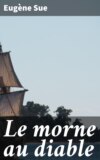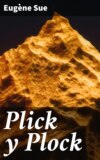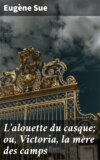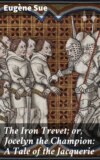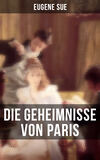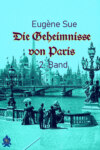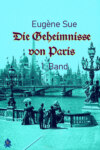Kitabı oku: «A Romance of the West Indies», sayfa 10
CHAPTER XV
THE ENVOY FROM FRANCE
While the governor read his dispatch De Chemerant looked with a satisfied air at an object within his box and said to himself, "If I have occasion to use it, this will be perfect; my idea is excellent."
"This order, sir, is regular; I must execute all the commands you give me," said the governor, looking at his visitor with profound astonishment. Then he continued, "It is so very warm, sir, that I must ask your permission to remove my wig, in spite of proprieties."
"Make yourself comfortable, sir, make yourself comfortable, I beg of you."
The governor threw his wig on the table and seemed to breathe more easily.
"And now, baron, be so good as to reply to a number of questions which I have the honor to put to you." And De Chemerant took from his little box some notes wherein was stated, doubtless, what he wished to ask the governor.
"There is, not far from the parish of Macouba, in the midst of woods and rocks, a kind of fortified mansion called Devil's Cliff?"
"Yes, sir, and this same house does not bear a very good name. Chevalier de Crussol, my predecessor, made a visit to the place to learn what foundation there was for these rumors, but I have searched in vain for papers bearing upon this subject among his correspondence."
Monsieur de Chemerant continued: "This house is occupied by a woman – a widow, baron?"
"So thoroughly a widow, sir, that she has been surnamed in the country Blue Beard, because of the rapidity with which she has successively made way with the three husbands she has had. Might I venture to say that this cravat in stifling me, sir?" added the unhappy governor; "we do not usually wear them here, and if you will permit me – "
"Take it off, sir, the service of the king will not suffer thereby. Chevalier de Crussol, your predecessor, you say, began an investigation on the subject of the disappearance of the three husbands of this Blue Beard?"
"So they told me, sir, but I have never found any trace of this investigation."
"Commander de Saint-Simon, who fulfilled the duties of governor after the death of De Crussol, and before your arrival here, did not deliver to you, baron, a confidential letter written by De Crussol?"
"Yes – yes, sir," said the governor, looking at De Chemerant with profound astonishment.
"This letter was written by De Crussol a short time previous to his death?"
"Yes, sir."
"This letter relates to the inhabitant of Devil's Cliff; is this not true, baron?"
"Yes, sir," said the governor, more and more surprised to find De Chemerant so well informed.
"Monsieur de Crussol assured you in this letter, upon his honor, that this woman called Blue Beard was innocent of the crimes imputed to her?"
"Yes, sir, but how can you know?"
Monsieur de Chemerant interrupted the governor and said, "Allow me to say, sir, that the king ordered me to make inquiries of you, and not replies. I have the honor to ask of you if, in this letter, the deceased, De Crussol, did not vouch for the entire innocence of the widow surnamed Blue Beard?"
"Yes, sir."
"He affirmed to you, on the faith of a Christian, and at the moment when he was about to appear before his God, also on his word as a gentleman, that you could, without prejudice to the service of the king, leave this woman at liberty and in peace?"
"Yes, sir."
"And that, finally, the Reverend Father Griffen, a man of well-known piety and the most honorable character, would be further surety for this woman, if you demanded it of him?"
"Yes, sir, and, in truth, in a confidential interview, very special and very secret – "
"Which you had with Father Griffen, baron, this religious man confirmed to you what De Crussol had stated in his last letter, and you made him, in form, a promise not to disturb the aforesaid widow?"
The governor, unable to fathom his being so well informed, gazed at De Chemerant in bewilderment. The kind of emotion which this examination, joined to the oppressiveness of the air, occasioned, was choking the baron. After a short pause he said resolutely to De Chemerant, "Faith, sir, one must accommodate oneself to one's situation. I must ask permission to take off my coat. This trimming of gold and silver weighs a hundred pounds, I believe."
"Take it off, take it off, baron; the coat does not make the governor," he said gravely, with a bow; then he continued: "Thanks to the advice of De Crussol and the Reverend Father Griffen, the dweller at Devil's Cliff has not been disturbed, baron? You have not visited the place, in spite of the strange stories about it?"
"No, sir, I assure you, the recommendation of the persons so respectable as Father Griffen and the deceased De Crussol were sufficient. And then the road to Devil's Cliff is impassable; the rocks bare and rent; it takes two or three hours to climb them; and faith, I assure you, sir, to make such a journey under the sun of the tropics," said the baron, wiping his forehead, which was perspiring at the mere thought of such a climb, "appears to me entirely inadvisable, because, morally, I am convinced that the aforesaid stories have no foundation, and I think in that I am not wrong."
"Allow me, baron, to ask you some further questions."
"At your service, sir."
"The woman called Blue Beard has a counting house at St. Pierre?"
"Yes, sir."
"Her business man is empowered to send out her vessels which are always destined for France?"
"That, sir, is very easily verified in the clearing books of the captains.
"And these registers?"
"Are there in that case."
"Will you take the trouble to look them over, baron, and to select from them some dates which I was going to ask of you?"
The governor arose, mounted painfully on a chair, and took down a large volume bound in green leather, placing it on his desk; then, as if this exertion had redoubled the heat he was suffering from and exhausted his strength, he said to De Chemerant: "Sir, you have been, doubtless, a soldier; you can understand that we live a little carelessly; for, without further parley and asking pardon for the great liberty, I will remove my vest, if you please; it is embroidered in cloth and as heavy as a cuirass."
"Take it off – take off everything that you wish to," replied De Chemerant with impervious gravity; "there is so little left for me to say to you that I trust you will not need to remove more of your apparel. Can you feel assured, other than from these facts, that the vessels loaded with cargoes by our widow have always been sent to France?"
"Yes, sir," replied the governor, opening his register; then, following with the end of his finger the tables, he read, "'For Rochelle, for Rochelle, for Bordeaux, for Bordeaux, for Rochelle, for Rochelle, for Havre de Grace.' You see, sir, the vessels have always sailed for France."
"That is well, baron. According to the direction, frequent enough, of vessels of commerce, which leave the counting-house wharves, it follows that Blue Beard (we will adopt the popular surname) can put a vessel to sea very quickly."
"Doubtless, sir."
"Has she not a brigantine always ready to put to sea, and which can in two hours be at the Creek of Caymans, not far from Devil's Cliff, where there is a little harbor," said De Chemerant, consulting his notes once more.
"Yes, sir; this brigantine is called the Chameleon; Blue Beard recently placed it, very generously, at my service (through the mediation of Monsieur Morris, her man of business), to give chase to a Spanish pirate, and there is an old filibuster of a captain called Hurricane, who commands the vessel – "
"We will speak of this filibuster later, sir, but this pirate – "
"Was sunk in the Rivière des Saints."
"To return to this filibuster, baron; he frequents the house of Blue Beard?"
"Yes, sir."
"As much so as another bad fellow, a buccaneer by trade?"
"Yes, sir," said the baron in a dry tone, resolved to confine himself to the secondary rôle which De Chemerant imposed upon him.
"A Caribbean also is often there?"
"Yes, sir."
"The presence of these men in the island is of how recent date?"
"That I do not know, sir; they were established here at my arrival in Martinique. They say that the filibuster formerly pursued his calling on the north of the Antilles and the seas of the south. Like many captains who have made something by filibustering, he has bought here a little dwelling at the point of the island, where he lives alone."
"And the buccaneer, baron?"
"This kind of person is here to-day, gone to-morrow, according to whether the hunt is more or less abundant; sometimes he remains away a month, and it is the same with the Caribbean."
"This information accords perfectly with that which was given me; beside, I do not speak of men of this sort other than by hearsay. They are far too unimportant, and too foreign to the mission which I am in charge of, to merit their occupying my attention for any length of time. They are, at most, passive instruments," continued De Chemerant to himself, "and they are probably very indirectly connected with this grave matter." Then, after a few minutes' reflection, he said aloud, "Now, baron, one more question: have not your secret police notified you that the English have tried to introduce themselves into this island since the war?"
"Twice, lately, sir, our cruisers have given chase to a suspicious vessel coming from the Barbadoes seeking to approach from the windward, the only places where one can land in the island; elsewhere the coast is too rugged to permit landing."
"Very good," said De Chemerant. After a moment's silence he said, "Tell me, baron, how long would it take to go to Devil's Cliff?"
"About eleven hours; the roads are difficult, one could not reach there before nightfall."
"Well, then, baron," said De Chemerant, taking out his watch, "in two hours from now, that is to say, at one o'clock in the afternoon, you will have the goodness to order thirty of your most reliable guards to arm themselves, to provide themselves with scaling ladders, one or two bombs, and to hold themselves in readiness to follow and obey me as they would yourself."
"But, sir, if you wish to go to Devil's Cliff, you must start at once in order to arrive by daylight."
"Doubtless baron; but as I desire to arrive in the middle of the night, you will see the wisdom of my not starting for two hours."
"That is another thing, sir."
"Can you procure for me a covered litter?"
"Yes, sir, there is mine."
"And can this go to Devil's Cliff?"
"To the foot of the mountain only, not a step further, for they say it is impossible for a horse to climb the heaped-up and yawning rocks."
"Very good; will you, then, be so good, baron, as to have this litter prepared, as well as a mount for me; I will leave it at the foot of the cliff."
"Yes, sir."
"I warn you, baron, that it is of the greatest importance that the object of this enterprise be perfectly concealed; all will be lost if they are warned of my visit to Devil's Cliff; we shall not inform the escort of our destination until outside Fort Royal, and we shall make, I hope, as much haste as the roads will permit. In a word, baron," continued the envoy, with a confidential air, which he had not assumed until then, "mystery is so much the more indispensable that it concerns a state secret and the future of two great nations."
"Because of Blue Beard?" said the governor, questioning with a curious glance the cold and grave face of De Chemerant.
"Because of Blue Beard."
"How?" replied the baron. "Blue Beard, then, counts for something in a state secret, in the peace of two great nations?"
Monsieur de Chemerant, who did not like repetition, made an affirmative sign and continued, "I also beg of you, baron, that you will see that the frigate's boat does not leave the wharf, so that I may return on board and put to sea without remaining here a second, if, as I hope, my mission be successful. Ah! I forgot; the litter must be such that it can be entirely closed."
"But, sir, is it, then, a prisoner that you are in search of?"
"Sir," said De Chemerant, rising, "a thousand pardons for repeating to you that the king ordered me to make inquiries of you instead of – "
"Good, very good, sir," said the governor. "Then I may open the windows?" asked the baron, who was suffocated in this apartment.
"I see nothing to prevent, baron."
The governor arose.
"So, baron," said De Chemerant, "it is understood that you do not inform the guide who is to conduct me of my destination, until the moment of our departure?"
"But in the meantime, sir, if I send for him, what shall I say to him?"
The visitor seemed astonished at the simplicity of the governor, and said to him, "Who is this guide, sir?"
"One of my blacks, who works at the king's house, a good league from here. He is an oddity who has run away himself so often that he is more familiar with the inaccessible spots of the island than with the open roads."
"Is this slave reliable, sir?"
"Entirely, sir; he would have no object in leading you astray; beside, I will warn him that if he does, I will have his nose and ears out off."
"It is impossible that he should resist such a consideration, baron. But to reply to your objection – how will this negro occupy himself until the moment of our departure?"
"An idea!" cried the baron triumphantly; "he can be flogged; that will mislead him; he believes that no one summons him here other than for that reason."
"That would be, certainly, an excellent means, baron, of working a diversion in his ideas, but it will suffice, I think, to keep him shut up until the moment of our departure. Ah! I had forgotten another thing, baron; I beg you will see that, during my absence, everything that can be found in the way of delicacies in fruit, vegetables, game, fine wines, confections, etc., etc., be sent on board ship. You need not consider expense, I will meet that."
"I understand you, sir; I must collect, in the way of refreshments, all that it is possible to keep on board during the first days of the voyage, as much so as if it were for the entertainment of a person of the greatest distinction," said the governor curiously.
"You understand me marvelously well, baron. But I fancy this black, our guide, has viewed, at least from the outside, the habitation at Devil's Cliff."
"Yes, sir; and he tells very strange stories about that house and the solitudes where it is builded."
"Ah, well, baron; here is a task for this slave; give orders that he be brought to me pending the time of our departure, and I will question him concerning what I wish to discover."
"I will send in search of him at once," said the governor, going out.
"May God or the devil convey this affair into safe harbor," said De Chemerant, when he was alone. "Fortunately, I have no need of the aid of this stupid governor; the greatest difficulty is still to be surmounted; but no matter, I have faith in my star. The affair of Fabrio-Chigi was a much more difficult matter, and then the hope, if not of a crown, at least almost of a throne, the ambition to direct the course of a great nation, the desire of recovering the good graces of the king, his relative, would not there be reasons sufficient to determine the most rebellious will? and, moreover, if these reasons were not enough," said De Chemerant, after some moments of silence, striking his little box, "here is another argument which will be, perhaps, more effectual."
…
Two hours later De Chemerant started for Devil's Cliff at the head of thirty of the Governor's Guards, armed to the teeth. A litter, drawn by two mules, followed this little detachment, preceded by the guide. This slave had had a long interview with De Chemerant, and, as a consequence, he had taken two scaling ladders and petards carried on a pack horse, a bundle of stout ropes with grapples of iron, and two axes. Moreover, De Chemerant had given orders to the lieutenant of the frigate to send him two good sailors chosen from among the fifteen sailors forming the crew of the boat which awaited, at the landing at Fort Royal, the result of the expedition.
This little company set out, preceded by the guide, who, flanked by the two sailors, marched a little in advance of De Chemerant. After having followed the coast for a long time, the troop climbed a very high hill, and pressed on into the interior of the island.
We will leave De Chemerant advancing slowly toward Devil's Cliff, and will rejoin Father Griffen at Macouba, and Colonel Rutler at the bottom of the precipice, where he had arrived by way of the subterranean passage, after the wildcats, by devouring the corpse of John, had removed the obstacle which before had held the English envoy in the cavern of the Caraibe.
CHAPTER XVI
THE STORM
Monsieur De Chemerant had scarcely left Fort Royal at the head of his escort when a young mulatto of about fifteen, after having followed for some time, hiding in the ravines or the swamps, on seeing the troop take the road to Devil's Cliff, started with all haste for Macouba.
Thanks to his perfect knowledge of the country and of certain roads not open, this slave reached Father Griffen's parish very soon. It was about four o'clock in the afternoon; the good priest was taking his afternoon nap, comfortably extended in one of the hammocks so ingeniously made of rushes by the Caribbeans. The young mulatto had the greatest difficulty in persuading one of the priest's two slaves to awaken his master; finally Monsieur concluded, after long hesitation, because of the deep and peaceful sleep of the priest, to do so.
"What do you want?" said the priest.
"Master, a young mulatto has come in haste from Fort Royal and wishes to speak to you at once."
"A mulatto from Fort Royal," said Father Griffen, springing from his hammock. "Let him come in quickly. What do you want, my child?" continued he, addressing the young slave; "have you come by direction of Monsieur Morris?"
"Yes, Father. Here is a letter from him. He told me to follow an escort of troops leaving Fort Royal this morning, and directed me, if they took the road to Devil's Cliff, to come and tell you, Father. His letter will explain the rest."
"Very well, my child, the troop – "
"Plunged into the Goyaviers valley, and took the road to the Black Rocks; that leads only to Devil's Cliff."
Father Griffen, much disturbed, broke the seal of the letter and seemed overcome at its contents. He re-read it with evidence of the greatest surprise, and then said to the mulatto, "Go quickly and find Monsieur."
The mulatto went at once.
"An envoy from France has arrived; he had a long interview with the governor, and I fear he has started with armed men for Devil's Cliff, as Monsieur Morris believes," said the priest, walking up and down agitatedly. "Monsieur Morris does not know, cannot know more. But I – I – I tremble to think of the consequences of this visit. Doubtless the mystery has been unveiled. And how, how? Who can have put them on the scent? Did not the secret die with De Crussol? His letter is my guarantee. Did they not quiet the governor and cause him to give up all pursuit of this unhappy woman?" Then, referring to Monsieur Morris' letter, the priest continued: "'A French frigate which remains at anchor outside the roadstead, an envoy who confers for two hours with the governor, and who, after this interview, leaves for Devil's Cliff with an escort' – there is more than suspicion, there is certainty? They have come to carry her off. My God! can it be true? But, the secret – who but myself knew it? for I only knew it, oh, yes, I alone, at least unless a frightful sacrilege – but no, no!" said the priest, clasping his hands with terror. "Such a thought on my part is a crime. No, it is impossible. I would rather believe it was indiscretion on the part of the only person who has an interest for life or death in the mystery, than that it should be the most impious treachery. No, a thousand times no; it is impossible! but I must start at once for Devil's Cliff. Perhaps I can get the advance of this man who has left Fort Royal with an escort. Yes, by hurrying, I may do it. I will find that unlucky Gascon; they have nothing to fear there. His extraordinary appearance on board made me believe the poor devil, for a time, to be an emissary from London or Saint-Germain; but I have, as they say, turned him inside out, in every way. I mentioned before him abruptly certain names which, had he been in the secret, he would have found it impossible not to betray it, however guarded he might be, and he remained impassible. I understand men too well to have been deceived by him; the chevalier is nothing but a crazy adventurer, a spoiled child, in whom, after all, good qualities triumph over the bad ones."
At this moment Monsieur appeared.
"Saddle Grenadille at once."
"Yes, master."
"Unchain Colas."
"Yes, master."
"Do not forget to put my large traveling cloak behind my saddle."
"Yes, master."
The black went out, then returned almost immediately, saying, "Master, shall I arm Colas?"
"Certainly, we go through the forest."
While his mare was being saddled, the priest continued to pace up and down restlessly. All at once he cried, with fright, as if struck by a sudden thought, "But if I have been deceived; if this adventurer, under a guise of frivolity, concealed some plan coolly resolved upon – some sinister design? But no! no! cunning and dissimulation could not attain to such an odious perfection. But what if his errand coincides with that of this man who has started out with an escort? And I, I who have answered for this adventurer, I who in my letter of yesterday have almost approved their decision concerning him, thinking, as they did, that this Gascon by repeating the mysterious stories connected with Devil's Cliff, would only advance the ends of those who live there. But what if I have been deceived? if I have helped introduce a dangerous enemy there? But no! he would have taken action before this if he had known the secret. And still – no! no! perhaps he waited the arrival of this frigate and this emissary before acting? Perhaps he is working with him? Oh! I am in terrible uncertainty."
So saying, Father Griffen went out quickly to hasten the preparations for his departure. Monsieur was saddling Grenadille and Jean was arming Colas.
Some explanation is necessary in order to instruct the reader in regard to a new actor of which we have thus far had no occasion to speak. Colas was a boar, possessed of marvelous intelligence; this boar always accompanied him and went ahead on these excursions. Thanks to their long, rough hair, and to their thick coat of fat, which impedes and congeals, so to speak, the sting of serpents, boars and even domesticated pigs carry on in the colonies a desperate war with these reptiles; Colas was one of their most intrepid enemies. His armor consisted of a kind of muzzle of iron pierced with little holes, and ending in a kind of very sharp crescent. This protected the end of the boar's head, its only vulnerable part, and furnished him with a formidable weapon against serpents. Colas always preceded Grenadille some steps, clearing the road and putting to flight the serpents which would have stung the mare.
Father Griffen, if he had known of the abrupt departure of Croustillac (the adventurer had, as we know, left the parsonage without any farewell to his host), would have offered Colas to the chevalier, when he became assured that Croustillac was absolutely determined to penetrate the forest. The priest thought that the boar would protect Croustillac from some of the dangers to which he would be exposed; but the early flight of the latter rendered the thoughtfulness of Father Griffen futile.
After placing the house in charge of the two blacks, on whose faithfulness he knew he could count, the priest spurred Grenadille, whistled to Colas, who responded with a joyful grunt, and like another St. Antony, the good father took the road which would lead him to Devil's Cliff, fearful of arriving too late, and also of encountering on the way De Chemerant, whom he could with difficulty hope to head off.
…
The reader will remember that, thanks to the voracity of the wildcats which had devoured the corpse of the sailor John, Colonel Rutler had been enabled to emerge from the pearl-fisher's cave by way of the underground passage. In order to understand the extreme importance and difficulty of the expedition which Colonel Rutler had undertaken, we must recall to the reader that the park contiguous to Blue Beard's mansion ran from north to south, like a kind of isthmus surrounded by abysms. On the east and west these abysms were almost without bottom, for on these sides the furthermost trees of the garden overhung a peak of tremendous height, whose granite face was washed by the deep and rapid waters of two torrents. But on the north, the park jutted on a steep incline, accessible, though dangerous in the extreme. Nevertheless, this side of the garden was sheltered from attack, for in order to climb these rocks, less perpendicular than those on the east and west, it was necessary to first descend to the bottom of the abyss by the opposite side, an undertaking physically impossible to attempt, even with the aid of a rope of sufficient length, the face of the rock sometimes jutting out and sometimes broken by the angles of the rocks projecting or receding.
Colonel Rutler, on the contrary, having passed through the underground passage, had at once reached the foot of the precipice; there remained for him only to essay the perilous ascent in order that he might gain entrance into Devil's Cliff. It would take about an hour to climb these rocks; he did not wish to enter the park surrounding the mansion until night had fallen; he waited before starting on his road, until the sun should be setting. The colonel had thrust the skeleton of John out of the passage. It was thus, near these human remains, in a profound and wild solitude, in the midst of a veritable chaos of enormous masses of granite thrown up by the convulsions of nature, that the emissary of William of Orange passed some hours, reclining in a cleft in the rocks in order to escape the heat of a tropical sun.
The oppressive silence of this solitary place was now and then interrupted by the roar of the sea as it fell upon the beach. Soon the golden light of the sun became more rosy; great angles of light outlined the face of the rocks where one could discern the further trees of Blue Beard's park, becoming fainter, little by little; and dull mists began to envelop the bottom of the abyss where Rutler waited. The colonel judged it time to depart.
Notwithstanding his rare energy, this man of iron felt himself seized, in spite of himself, with a kind of superstitious fear; the horrible death of his companion had affected him keenly, the enforced fast to which he had been subjected since the preceding evening (he could not bring himself to eat the serpent), mounted to his head, causing singular and sinister ideas; but, surmounting this weakness, he commenced the ascent.
At first Rutler found the points of support allowed him to rapidly climb a third of the face of the cliff. Then serious obstacles began to present themselves; but with dogged courage he surmounted them. At the moment when the sun disappeared suddenly below the horizon, the colonel reached the summit of the cliff; broken by fatigue and pain, he fell half-fainting at the foot of the further trees of the park at Devil's Cliff; happily among these were several cocoanut trees; a large quantity of ripe nuts lay on the ground. Rutler opened one with the point of his dagger; the fresh liquid inclosed within appeased his thirst, and its nourishing pulp his hunger. This unexpected refreshment renewed his strength, and the colonel penetrated resolutely into the park; he walked with extreme caution, guiding himself by the instructions John had given him, in order that he might reach the white marble fountain not far from which he wished to conceal himself. After walking some time in this obscurity, under a tall forest of orange trees, Rutler heard in the distance a slight sound as of a stream of water falling into a basin; soon after he reached the border of the orange grove, and by the faint light of the stars – for the moon would not rise until later – he saw a large vase of white marble, situated in the midst of a circular space, on all sides surrounded with trees. The colonel, pushing aside some thick shrubs of Indian plants, enormous reeds which grow abundantly in that humid soil, hid himself some steps away from the fountain and quietly awaited events.
…
In order to sum up the chances of the safety or danger to which the mysterious dwellers at Devil's Cliff were exposed, we must remind the reader that De Chemerant had started from Fort Royal in the afternoon, and was advancing with all haste; that Father Griffen had hastily left Macouba in order to head off the French envoy; and that Colonel Rutler had secreted himself in the center of the garden.
We must now relate all that since the morning had passed over the heads of Youmäale, Blue Beard and the Chevalier de Croustillac.

